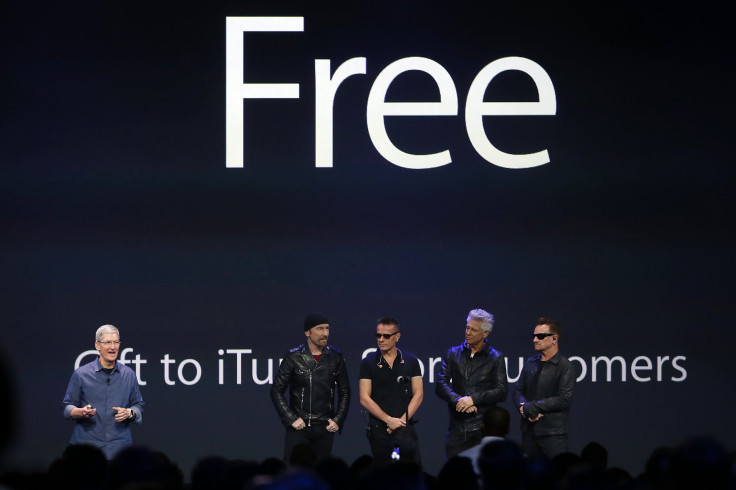Bono: 100 Million iTunes Users Listened To At Least One Track On 'Songs Of Innocence'

DUBLIN -- There's a fine line between giving something away and foisting it on the unsuspecting. That's what U2 found out when millions of Apple users woke up on a Tuesday in September and found the band's latest, "Songs of Innocence," downloaded into their iTunes accounts.
Apple gave away the album to 500 million iTunes users to help promote the launch of the iPhone 6, part of a marketing and licensing deal reported to be worth as much as $100 million. But the online blowback was so strong that Apple published instructions on how to remove the album. As the New York Times' David Carr observed in an on-stage interview at Web Summit in Dublin, the giveaway briefly made U2 frontman Bono "the least popular person on the Internet."
The iconic Dubliner read the criticism, and is philosophical about it. "We got a lot of people who were uninterested in U2 to be mad at U2, and I would call that an improvement in the relationship," he said during the interview.
Moreover, he said, "we were paid" and would do it again. He said that 100 million people "checked us out" and listened to at least one song on the album and that 30 million listened to four songs. "It took 30 years for 'The Joshua Tree' to get there," he said.
Selling that album to Apple allowed U2 to introduce themselves to a global audience, one that might not be familiar with the band or might not listen to rock music.
"We have always wanted our music to be heard," he said. "The idea that we could work for years and years on the most personal songs ... the idea that they might not be heard ... We were thrilled to have the opportunity to introduce ourselves."
Bono defended Spotify, dumped this week by Taylor Swift, and said the real enemy of music isn't technology but the opacity of the record industry, which has historically not revealed what it pays to artists and songwriters. "The real enemy is not between digital downloads or streaming, the real enemy, the real fight is between opacity and transparency," he said. "The music business has historically involved itself in quite considerable deceit.”
© Copyright IBTimes 2025. All rights reserved.





















